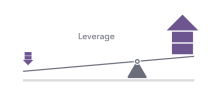Archive for April 2020
 Today the Oxford University Business School arranged a webinar in which my macro-economics professor, Oren Sussman, explained to us the economic impact of the Coronavirus. I will summarize the key takeaways below.
Today the Oxford University Business School arranged a webinar in which my macro-economics professor, Oren Sussman, explained to us the economic impact of the Coronavirus. I will summarize the key takeaways below.
The capitalist system is characterized by periodic crises. The last one was the 2007 housing crisis. Even without the Coronavirus outbreak, we were on borrowed time. The long expansion since the last crisis was very much fueled by easy money from the Fed and imprudent fiscal policy from the federal government. As a result, the whole economy is overly leveraged (that is to say, having too much debt.) An economy without too much debt is like a pond of water. A stone thrown at it will create ripples that will eventually dissipate. An economy with too much debt is like a pane of glass. A stone thrown at it can break the whole thing. Prior to the Coronavirus outbreak, our economy was already like a pane of glass. Read the rest of this entry »
 Let me start with my usual disclaimer that I can not predict the market. Like the similar article I wrote four weeks ago, this article is simply an exercise in which I think through possible scenarios for the market.
Let me start with my usual disclaimer that I can not predict the market. Like the similar article I wrote four weeks ago, this article is simply an exercise in which I think through possible scenarios for the market.
When I wrote “Will The Stock Market Give Us a 30% Discount?” the market had already fallen 19%, and I was thinking through the scenarios under which it would fall through 30%. One of the scenarios unfortunately came true: some US states have lost control of the Coronavirus situation, and the market did drop all the way to 36% before recovering to 23% down as it stands now.
Now with Europe finally turning the corner and the rapid spread in the US beginning to decelerate, will the market discount disappear quickly or will there be more shoes to drop that could cause the market to give us even deeper discounts? Could it hit 40% or more?
Intelligent Ignorance Is Bliss
Posted on: April 3, 2020
 Allow me to indulge in a bit of fancy. I would love to be remembered as the person who invented the oxymoron “Intelligent Ignorance.” By the end of this essay, I hope to convince you that intelligent ignorance can make you a better investor.
Allow me to indulge in a bit of fancy. I would love to be remembered as the person who invented the oxymoron “Intelligent Ignorance.” By the end of this essay, I hope to convince you that intelligent ignorance can make you a better investor.
Like the other oxymorons “jumbo shrimp”, “pet peeve”, “bloody awesome” etc., this one needs a story as well. It all started with Nobel Prize winner Daniel Kahneman’s discovery that we humans experience joy when making money and pain when losing money – Duh! Hold on, keep on reading, there’s more. The pain is usually twice as intense as the joy even if the amount of money lost or gained is the same. This means that if you pay too close attention to a volatile market, it could be a hell of bad experience. Bad experiences lead to bad judgments and before long you are making bad trades.
